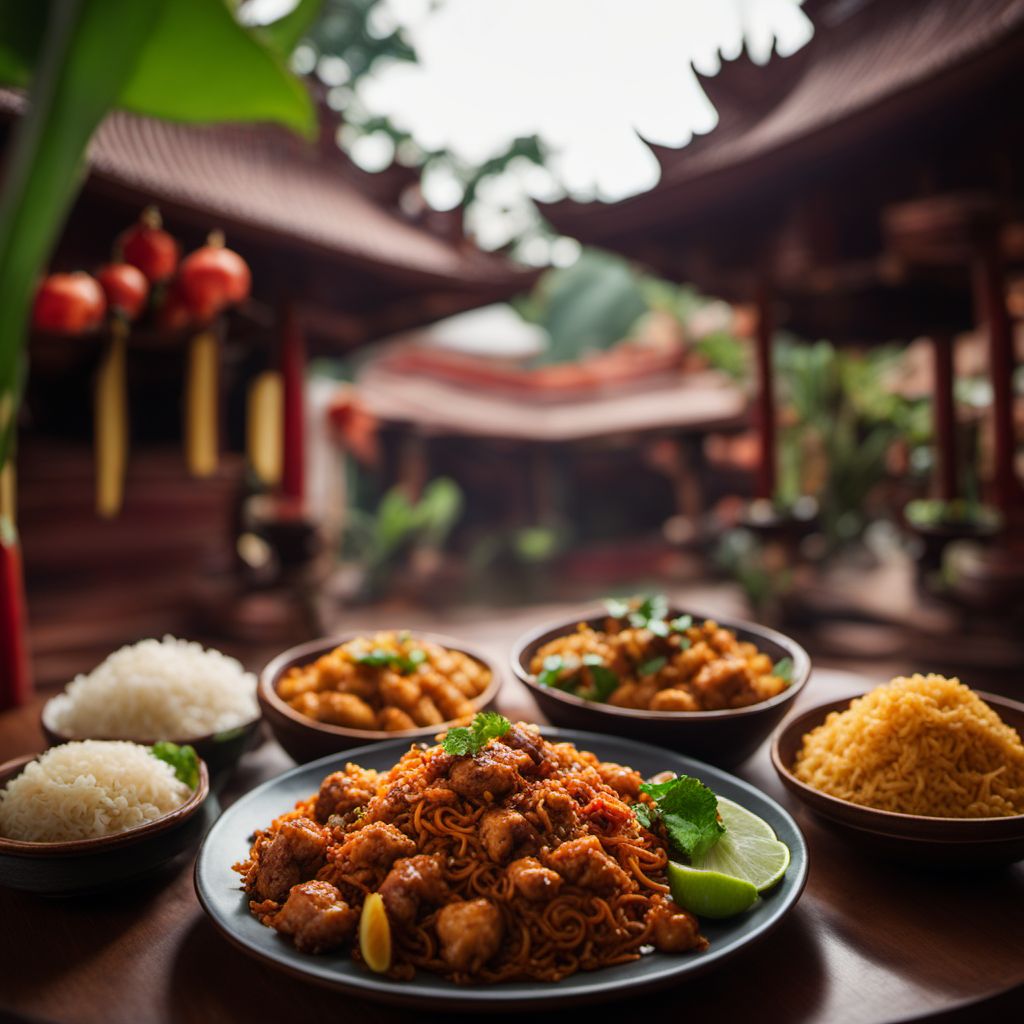
Cuisine
Malay cuisine
Malay cuisine is a diverse and flavorful cuisine that is influenced by the different cultures that make up Malaysia. It is characterized by the use of spices and herbs, such as lemongrass, ginger, and turmeric, which give the dishes their unique flavor. Malay cuisine is also known for its use of coconut milk, which adds a creamy texture to many dishes. Seafood is a popular ingredient in Malay cuisine, as Malaysia is surrounded by water and has a rich fishing culture. Malay cuisine is also known for its use of rice, which is a staple food in Malaysia.
Typical ingredients
Coconut milk, Rice, Lemongrass, Ginger, Turmeric, Chili peppers, Garlic, Shallots, Belacan (shrimp paste), Tamarind, Galangal, Kaffir lime leaves, Fish sauce, Soy sauce
Nasi lemak is a popular Malay dish that consists of rice cooked in coconut milk and served with sambal (a spicy chili paste), fried anchovies, peanuts, cucumber, and a hard-boiled egg. It is often considered the national dish of Malaysia.
More cuisines from this region...
Malaysian Chinese cuisine, Eurasian cuisine of Singapore and Malaysia, Arab cuisine, Malaysian Indian cuisine, Peranakan cuisine, Sarawakian cuisine, Sabahan cuisine
History
Malay cuisine has a long history that dates back to the 14th century, when the Malacca Sultanate was established. The cuisine has been influenced by the different cultures that have settled in Malaysia over the centuries, including the Chinese, Indians, and Europeans. Malay cuisine has also been influenced by the Islamic religion, which has strict dietary laws that prohibit the consumption of pork and alcohol. As a result, Malay cuisine is halal, which means it is permissible under Islamic law.
Cultural significance
Malay cuisine is an important part of Malaysian culture and is often served during festivals and celebrations. It is also a popular cuisine in neighboring countries, such as Indonesia and Singapore. Malay cuisine is known for its hospitality and generosity, and it is common for guests to be served large portions of food.
Health benefits and considerations
Malay cuisine is generally healthy, as it is based on fresh ingredients and does not use a lot of oil or fat. However, some dishes may be high in sodium or sugar, so it is important to eat them in moderation. Some Malay dishes may also contain peanuts or other allergens, so it is important to check the ingredients before consuming them.
Malay cuisine dishes

Asam pedas
Asam Pedas
Asam pedas is a spicy and sour fish stew that is popular in Malaysia and Indonesia. The dish is made with fish, tamarind, chili peppers, and other spices.

Ikan bakar
Grilled Fish
Ikan bakar is a popular Indonesian dish that translates to "grilled fish" in English. It is a simple yet flavorful dish that is perfect for seafood lovers.
Malay cuisine recipes Browse all »
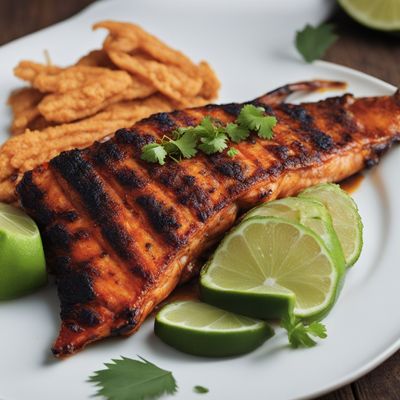
Grilled Spiced Fish
Flavors of the Grill: A Spicy Twist on Grilled Fish
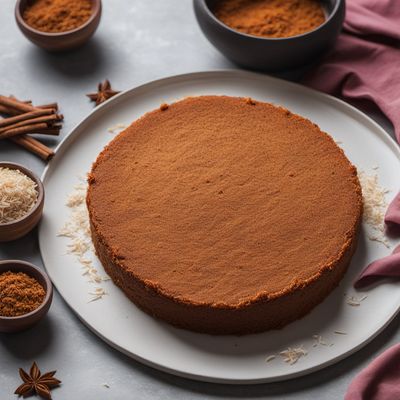
Malay-style Stonska Torte
Spiced Layers of Delight: Malay-inspired Stonska Torte
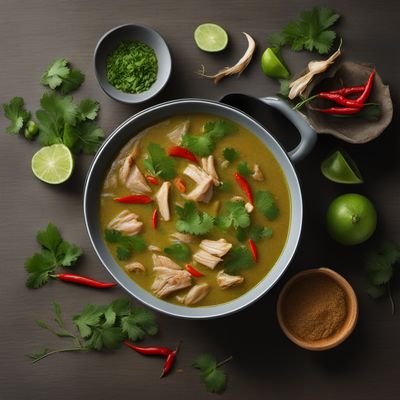
Malay-style Klachelsuppe
Spicy Coconut Chicken Soup: A Malay Twist on Klachelsuppe
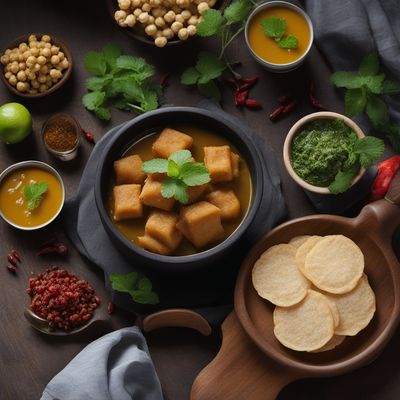
Malay-style Panipuri
Savory Delights: Malay-inspired Panipuri Bursting with Flavor
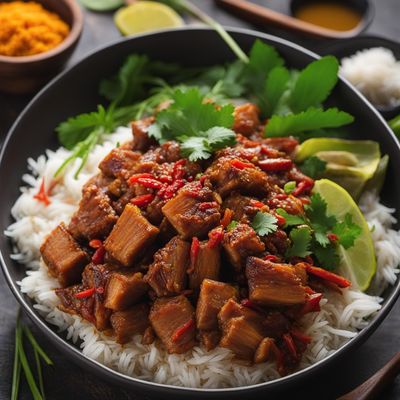
Malay-style Braised Pork Rice
Spicy and Fragrant Rendang Pork Rice

Panama Torte with a Malay Twist
Malay-Inspired Spiced Chocolate Torte
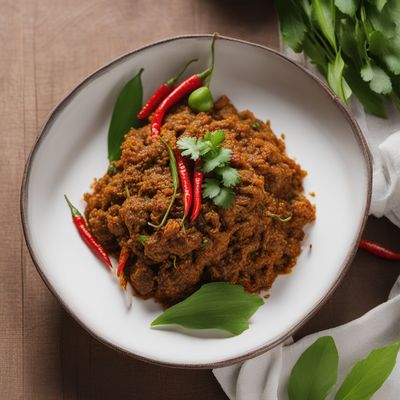
Apohtin Rendang
Spicy and Fragrant Apohtin Rendang: A Malay Twist on a Cypriot Classic

Malay-style Spinach with Peanut Sauce
Sambal Spinach: A Spicy Twist on a Classic Malay Delight

Malay-style Beef Patty
Spiced Beef Patty with Malay Flavors
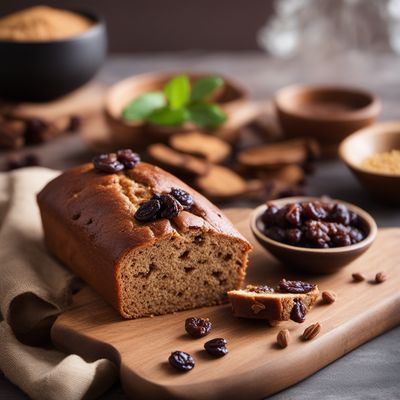
Malay-style Raisin Bread
Spiced Raisin Delight: A Malay Twist on Raisin Bread
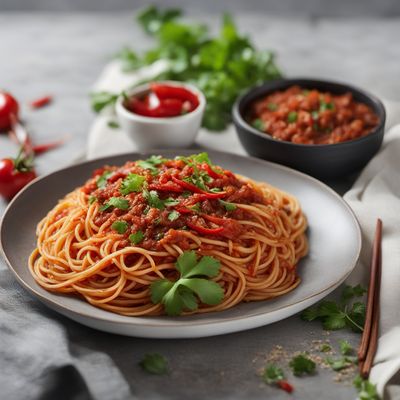
Malay-style Spaghetti with Spicy Sambal
Fiery Fusion: Malay-Italian Spaghetti Delight
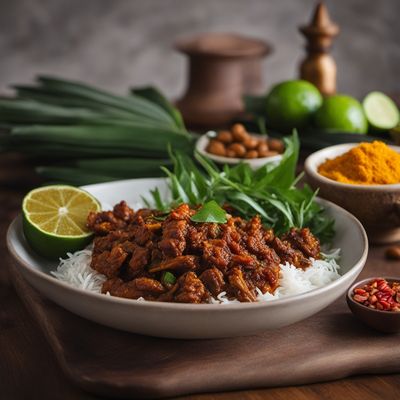
Ajilimójili Rendang
Spicy Peanut Rendang with a Malay Twist